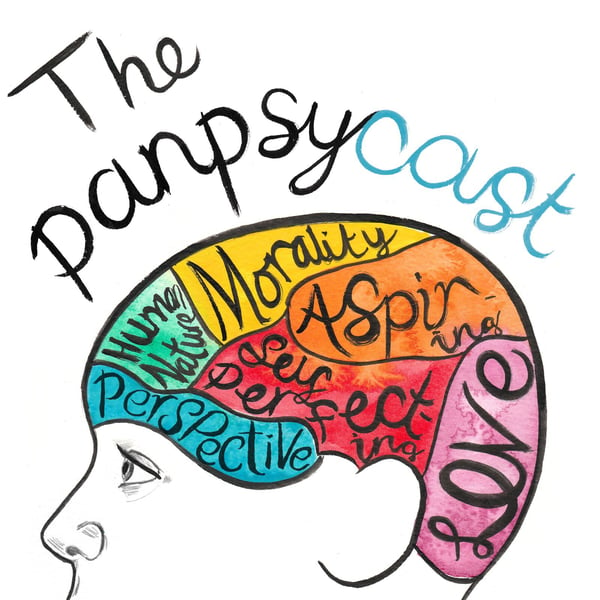Episode 127, ‘The Pursuit of Happiness’ with Jeffrey Rosen (Part I - The Founding Fathers)
The Panpsycast Philosophy Podcast
Jack Symes | Andrew Horton, Oliver Marley, and Rose de Castellane
4.8 • 604 Ratings
🗓️ 25 February 2024
⏱️ 37 minutes
🧾️ Download transcript
Summary
Alongside life and liberty, the Declaration of Independence marked the pursuit of happiness as the foundation of American democracy. Yet, as the history of philosophy has taught us, understanding happiness is no easy task. Pursuing happiness as the cessation of desire, a feeling of perpetual pleasure, or as a state of human flourishing are very different projects…so, which conception of happiness did America’s Founding Fathers take to be an ‘inalienable right’?
In this episode, we’ll be exploring the nature of happiness with Professor Jeffrey Rosen, President and CEO of the National Constitution Center. According to Rosen, in tracing the Founding Fathers’ intellectual development – inspired by Greek and Roman philosophy – we see that the Founders understood happiness as a pursuit of moral excellence rather than immediate gratification.
No doubt, Western understandings of happiness have shifted…today, happiness means something closer to feeling good than being good. Our question is whether this cultural shift was a mistake. In carving out our futures, ought we look to the past? In defining the purpose of our lives and the destination of our states, should we turn to America’s Founding Fathers and their ancient teachers?
Contents
Part I. The Founding Fathers
Part II. Further Analysis and Discussion
Transcript
Click on a timestamp to play from that location
| 0:00.0 | Alongside Life and Liberty, the Declaration of Independence marked the pursuit of happiness as the foundation of American democracy. |
| 0:15.9 | Yet, as the history of philosophy has taught us, understanding happiness is no easy task. Pursuing happiness |
| 0:22.0 | as a cessation of desire, a feeling of perpetual pleasure, or as a state of human flourishing |
| 0:27.6 | are very different projects. So, which conception of happiness did America's founding fathers |
| 0:33.5 | take to be an inalienable right? In this episode, we'll be exploring the nature of |
| 0:39.1 | happiness with Professor Jeffrey Rosen, president and CEO of the National Constitution Center. |
| 0:44.4 | According to Rosen, in tracing the founding father's intellectual development, inspired by Greek |
| 0:49.5 | and Roman philosophy, we see that the founders understood happiness as a pursuit of moral |
| 0:54.0 | excellence rather than immediate gratification. No doubt, philosophy, we see that the founders understood happiness as a pursuit of moral excellence |
| 0:54.7 | rather than immediate gratification. No doubt, Western understandings of happiness have shifted. |
| 1:00.9 | Today, happiness means something closer to feeling good rather than being good. |
| 1:05.9 | Our question is whether this cultural shift was a mistake. In carving out our futures, |
| 1:11.0 | all we look to the past, |
| 1:12.5 | in defining the purpose of our lives |
| 1:14.1 | and the destination of our states, |
| 1:16.2 | should we turn to America's founding fathers |
| 1:18.2 | and their ancient teachers. |
| 1:42.5 | Thank you. Hello and welcome to episode 127 of the pan-sycast, trying to think before I speak, |
| 1:45.6 | I'm Jack Symes, and I'm delighted to be joined once again by the man whose imitations of religious figures are far from virtuous. It's Mr. Oli-Mali. |
| 1:51.5 | Hello. |
| 1:52.4 | And heeding the founding father's call to live in pursuit of happiness, |
| 1:56.4 | its president and CEO of the National Constitution Center, Professor Jeffrey Rosen. Great to be with you |
... |
Please login to see the full transcript.
Disclaimer: The podcast and artwork embedded on this page are from Jack Symes | Andrew Horton, Oliver Marley, and Rose de Castellane, and are the property of its owner and not affiliated with or endorsed by Tapesearch.
Generated transcripts are the property of Jack Symes | Andrew Horton, Oliver Marley, and Rose de Castellane and are distributed freely under the Fair Use doctrine. Transcripts generated by Tapesearch are not guaranteed to be accurate.
Copyright © Tapesearch 2025.

